Women’s Chiquitano: example of how to fight, and the prosperity of
At the meeting, which took place on the Portal, the Enchanted-the women of the Chiquitano give you a show of solidarity-based economy, and rely on the empowerment of the people, and the struggle for the land
AI generated audio
By Daphne Spolti/OPAN
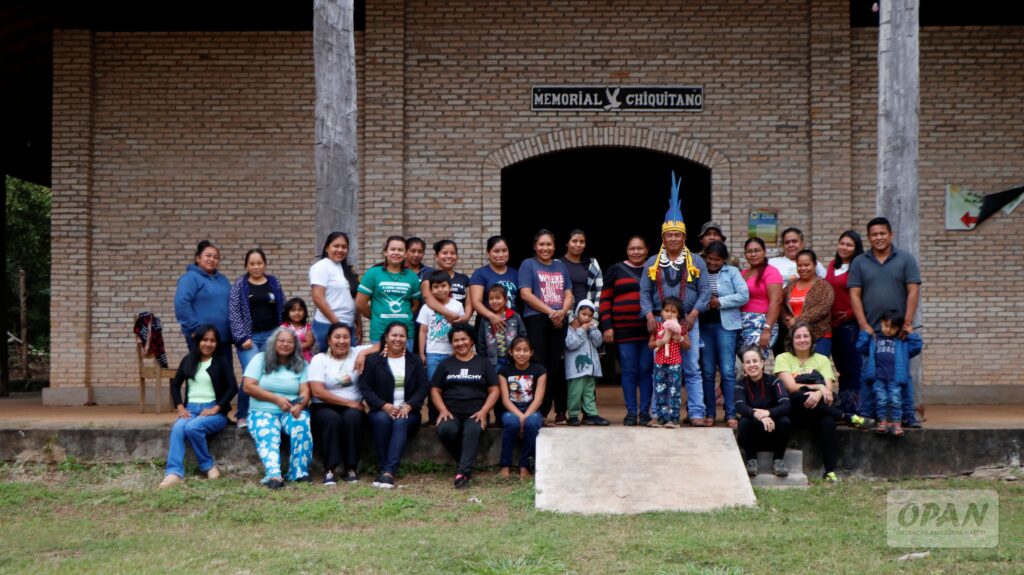
Women’s Chiquitano in three different places gathered at the Memorial to the People of the Chiquitano, in the Land of the Indigenous (IT) Portal, the Enchanted (S), to talk about their roles as keepers of the culture, quality of life, and the protection of the earth. The activity was held on 31 may and 01 June, which raised questions that cover the breadth of the life of the women, and to all the people of the Chiquitano, and are evidence of the history of the resistance, they have been building them with both prosperity and wealth.
The opening counted with the presence of the chiefs, which gave him strength to the event. Participated in the inhabitants of the villages of Nautukirs Pisiorsch, Acorizal, park city, utah, Vanuatu Mastakama, New Wealth, and community in the urban Group, the Hummingbird, which is located in Porto Esperidião. The work has been carried out through a partnership between the people of the Chiquitano, and the Operation in the Amazon’s Native (OPAN), by way of a project to support the adoption of the programme is financed by the Brothers come together https://www.manosunidas.org/).
At the beginning of the activity of the women’s shared in the affairs of importance, and as a cultural transmission to the different generations, and the prevention of the disease, with the use of medicinal plants, and the impact of technology on the health of children and adolescents and the opportunities and challenges for the economies of the Chiquitano, and for women. “When you get your income, you are able to look further ahead,” he said Francelina Chue Poquiviqui, in the group of Beija-Flor.
In the course of the meeting, the women in the Chiquitano, presented in a wide range of products such as cloth-of-the-plate, hand bags, detergents, carpets, fruits, nuts, eggs, free-range chicken, sweet potatoes, bananas, and other items that were taking place in the table, the central business area. In the village, a New Fortune, a little over a year ago, they began the work of cutting and sewing. And now, with the rugs are produced are also part of this vast production and the Chiquitano.
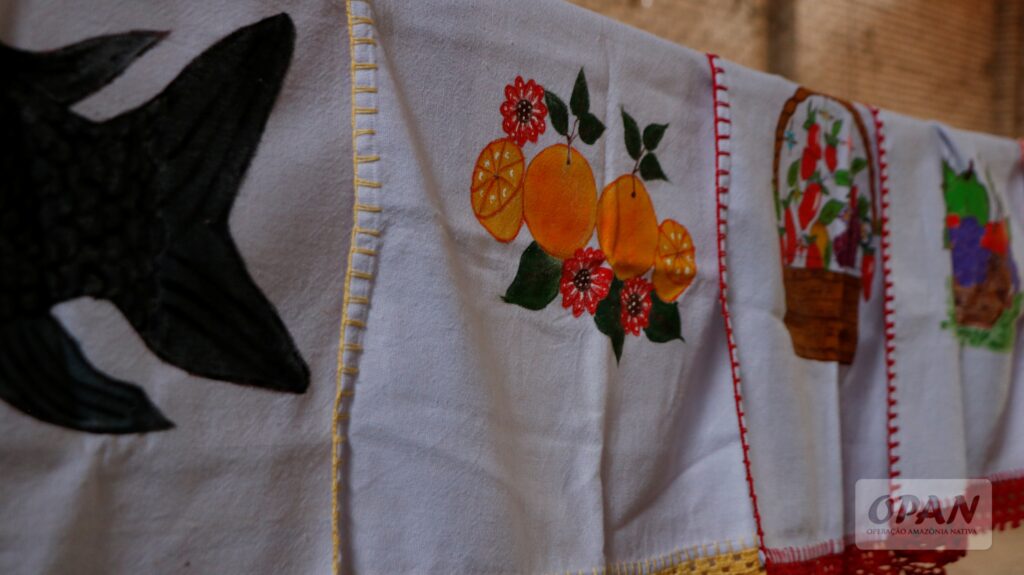
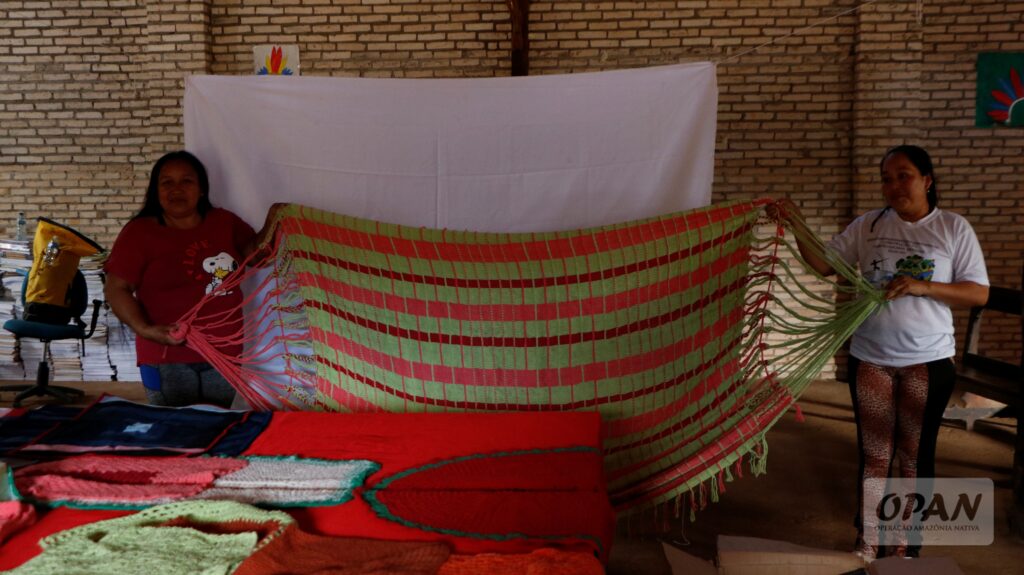
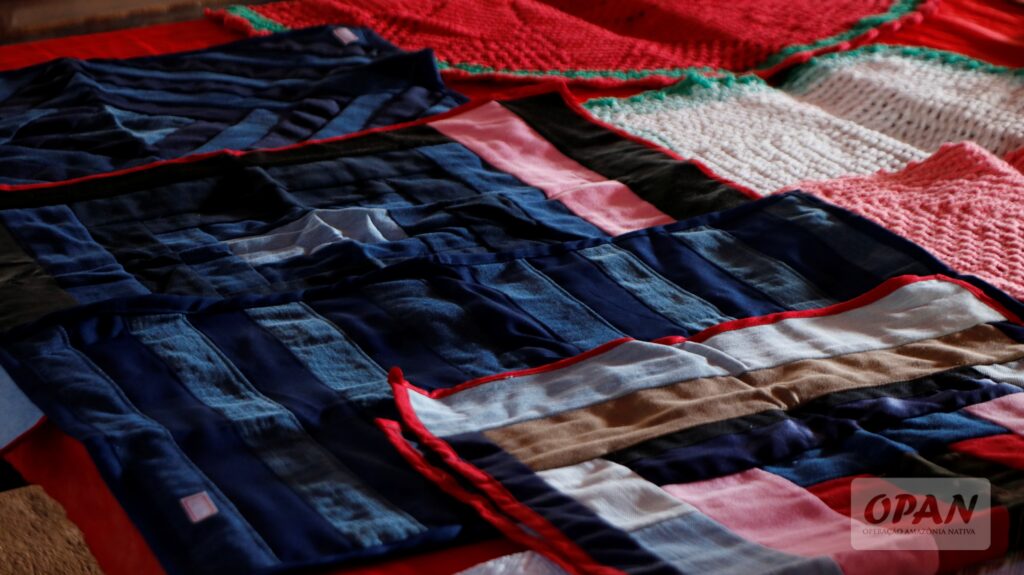
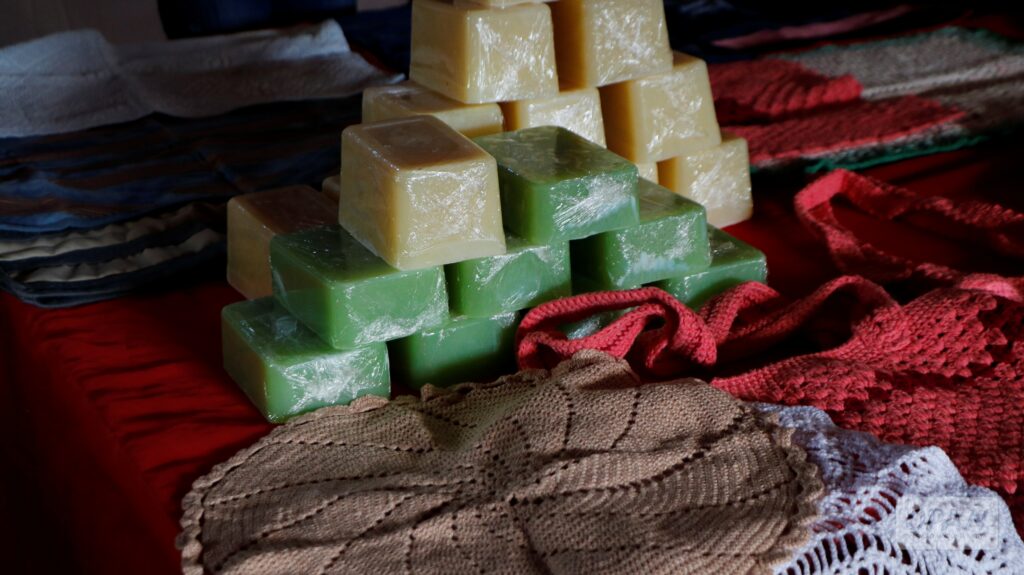
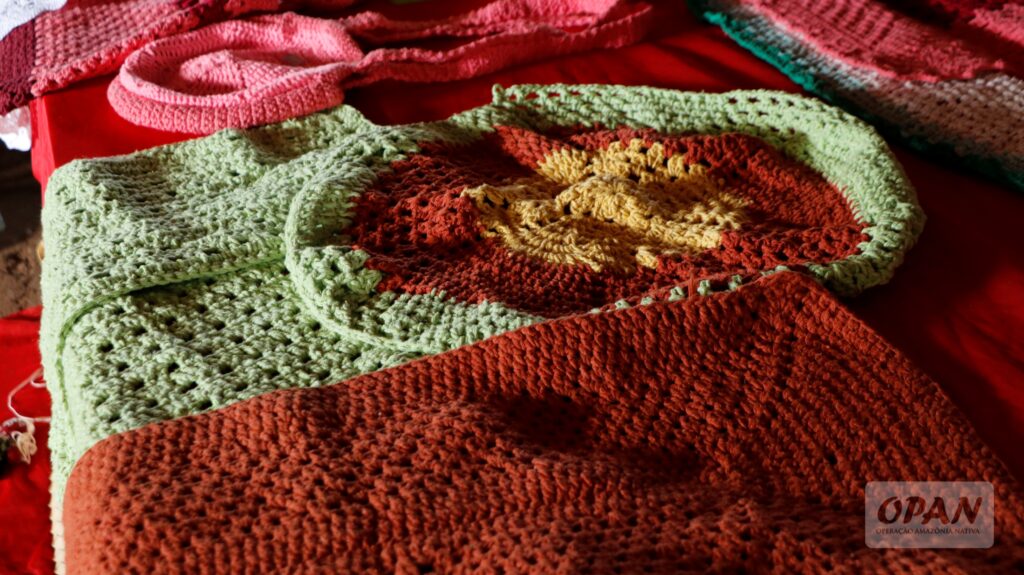
Within this group of products, that are valued by the cultural elements of the people, with designs of their own, the depiction of the flute and the drum of the festival Curussé, and a pot of traditional pottery. “We have started to mark our craft,” said Mary, Syria Rupê of the village of park city, utah, with a march of indigenous women in the world today, have seen pockets of other people, and decided then to do with the traces of his art in traditional Chiquitano.
The craft and the food is marketed within the community, with a cost that is affordable. “We sell it here at a value that people will be able to pay it,” said Annie, therefore, that the village and Acorizal. In the case of a Group of Humming-bird, in the sale, you have an audience in Porto Esperidião, and even in the two countries. Is there an interest of the Chiquitano, of the different regions to increase sales further.
This variety is productive, has also been seen in the outdoor activities during the event, which included tours through the farm to school in the IT Portal, the Enchanted. Rice, zucchini, potatoes, sugarcane, sesame, and the other was grown as a learning experience associated with the course. The guests they walked up and down, also for the garden of Sebastiana Mendes da Rocha and her husband, Victor, Ronaldo Gomes da Rocha, and the leader of the village, Nautukirs Pisiorsch, revealing even more of the food: different kinds of hot peppers, orange, cherry, lemon, grapefruit, corn, cucumber, tomato, lemongrass, chives, mint, sugarcane, papaya, and many others.
In the house, Sebastiana, and He was put into practice by the exchange of experiences about medicinal herbs, one of the themes of the drivers of the meeting of the women. Francelina prepared with a home remedy that has been designed by her husband, to a stomach bug. “He came on to this recipe is simple and very effective,” she said, showing it to the group, you might try a tea cozy. The consultant Marcia Antunes Maciel, the facilitator of the meeting of the women spoke on the conservation of medicinal plants in, and which, in addition to their own, they can also be an opportunity for income generation.
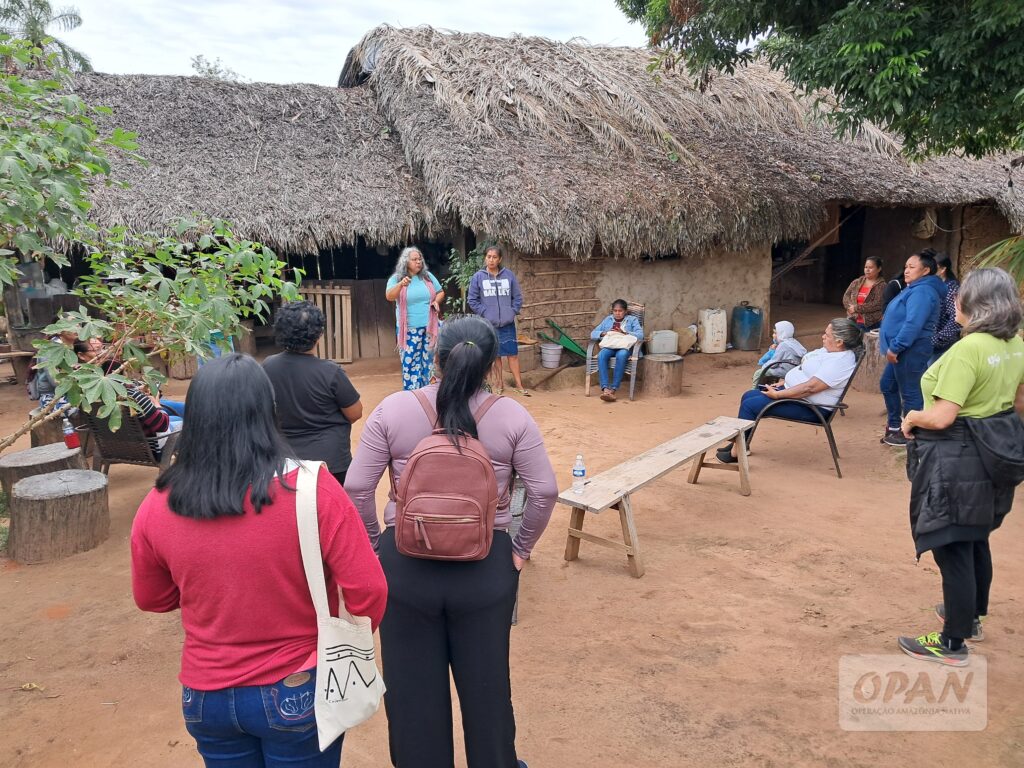
In addition to the identification of the plants, and the indigenous Paul Eberhardt, of OPAN, he argued for the importance of maintenance in the care and prevention of health problems. “Maybe you’re not going to have a headache, you’re not going to be a pain in your stomach, you’re not going to be malnourished, you’re not going to have a lot of stuff, if you have any food,” he said.
The meeting agenda also included a presentation on the purpose of public policy, with a focus on a few that can be put to good use by the Chiquitano, such as the purchase of food and financial aid for agriculture. In this activity, one of the women put on the agenda of the inconsistencies in access to rights such as pensions and retirement benefits, the one that has generated a huge hassle.
In view of the relevance of the topic of public policy, he has been selected among the top priorities of the next meeting, which will be held in August, when women want to meet to pass on knowledge about the construction of the stove-traditional-Chiquitano.
The struggle, resilience, and strength
In the recent history of the people of the Chiquitano, and, from 1940, is to be determined by the occupation of their land by the military garrisons of the enemy, and the abandonment of many of the areas of the farmer, as described in an environmental diagnosis of collaboration, produced for the OPAN, by 2024. In this situation, he submitted to the people, to the status of a “permissionários”, in that they need permission to live in the territory.
But now it is getting better. The Chiquitano people have a land that has been declared, waiting for a mark, and it continues in the fight to secure the right to land and other places, even if there are small gaps in comparison with the other territories of the indigenous peoples.
“We are here today because we fought for this place,” said Mary, Catherine, therefore, that the village Nautukirs Pisiorsch. She watched the time on his father worked for the us Army, under the threat of being taken away, and that her grandmother spent the whole day in the water, washing the linens, to the posting, and I ate lunch, packed lunch is carried for the girls on the side of the river. “It’s a struggle. And today we’re here to harvest the fruit. And I give thanks to God for it,” she said, telling the women that they were married, they weren’t permitted to make to your home, in the territory-a situation that changed for the demarcation of the land.
Other women have also made reports on exciting about the difficult times they face. “There, in the village of us, in the beginning it was difficult. We have been under threat. Just that, thanks to God’s people comforted, helped, and so we also have more people to move forward,” he told Eronita Aiala Cassupá, in the village of New Wealth. “We’re going to think about it now, in the next dream. We’re not going to stop. The job is pretty important, and that generates the income,” says Ms. Rebellato, co-ordinator of the project carried out by the OPAN, along with the Chiquitano.
“In this moment of return, and to share the story of your strength, in the way that they have to be in an area of the border, all of this insecurity in land tenure, it shows a lot of strength, the resilience, the resilience to be there, leading the life, history, and looking to the future,” said the co-ordinator of the state of Mato Grosso, in the OPAN, Artema Lima, peru.
Next steps
The women of the Chiquitano, emphasized the importance of being together more often. “It’s not all the time that we sit down for a get together. Just for a cell phone. I hope that people come to us to get more strength,” he encouraged Elenir of Rue Spinoza, the vice chief of the village and Acorizal. “The union, when we sit down to talk about the culture, about their health, so it’s very strong,” said Mary, Syria Rupê.
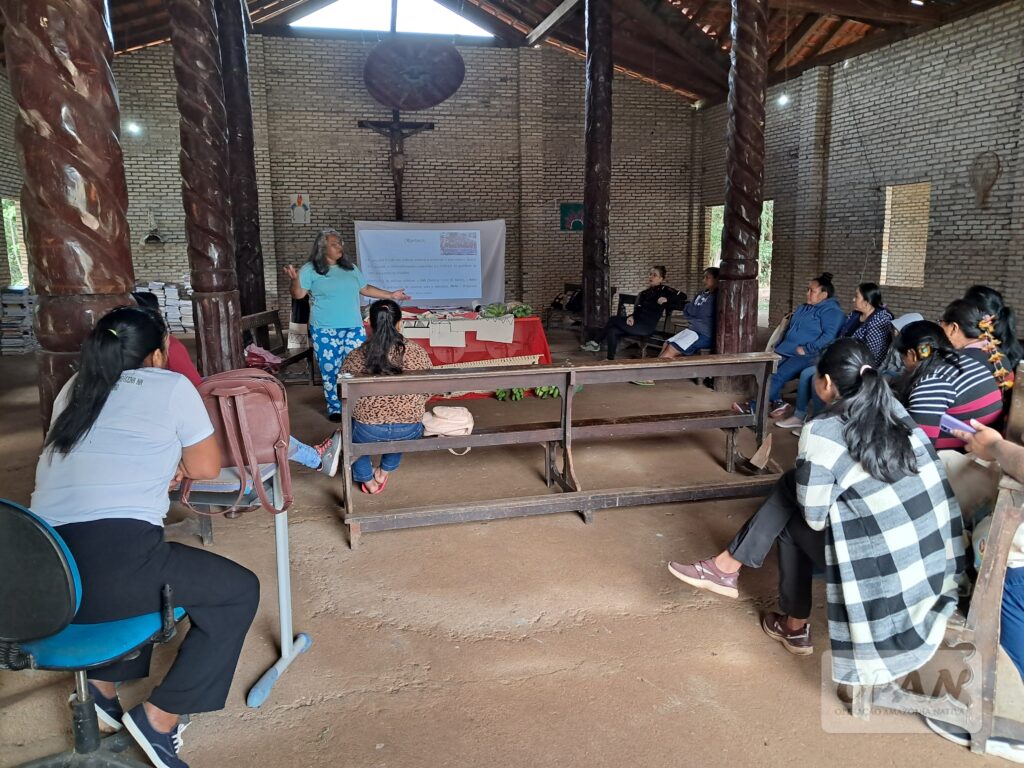
A meeting of the women of the Chiquitano, was once thought of as an experience that proved to be far more widespread in the course of the day. “That moment was the significance of socio-political considerations, and the development of the women’s movement chiquitanas and, indirectly, the Chiquitano people who fight so hard for the legalization of the territory,” said Marilyn Maciel.
Sebastiana, in the village of Nautukirs Pisiorsch, it also brought to mind the story of the struggle that you have used. “To talk, ‘it was easy, it wasn’t. If you are here it is because God is on our side.” She encouraged him to fight for the women and men of the Chiquitano, in recognition of the work of the village’s Wealth and the Group’s Hummingbird, you have come from far away, her craft, and her participation in the event and to encourage efforts to improve the quality of life of the people. “If you want to win, you have to fight,” he said.
